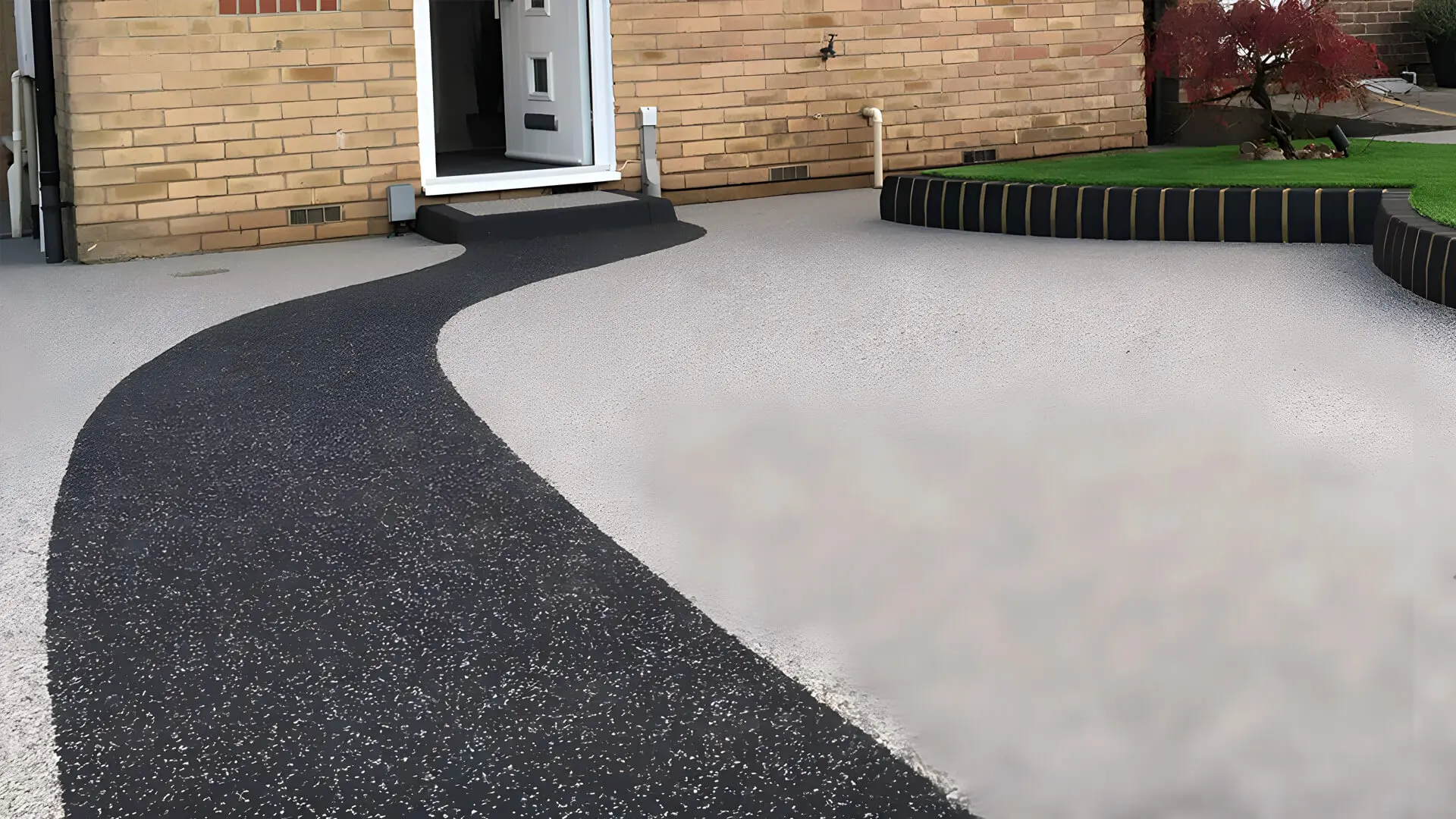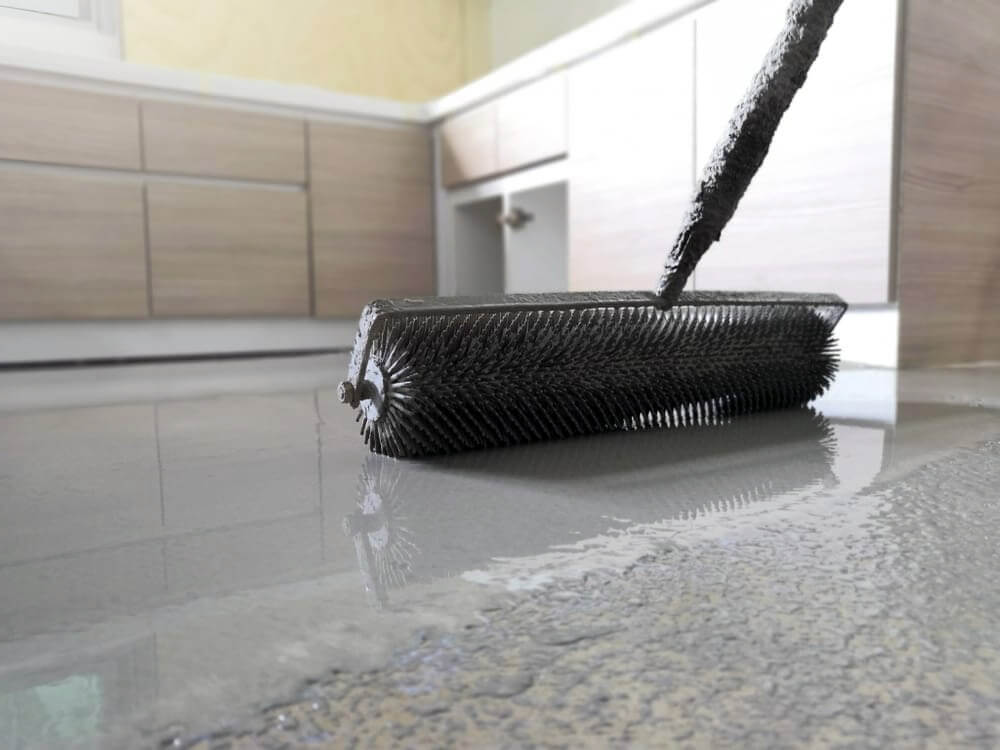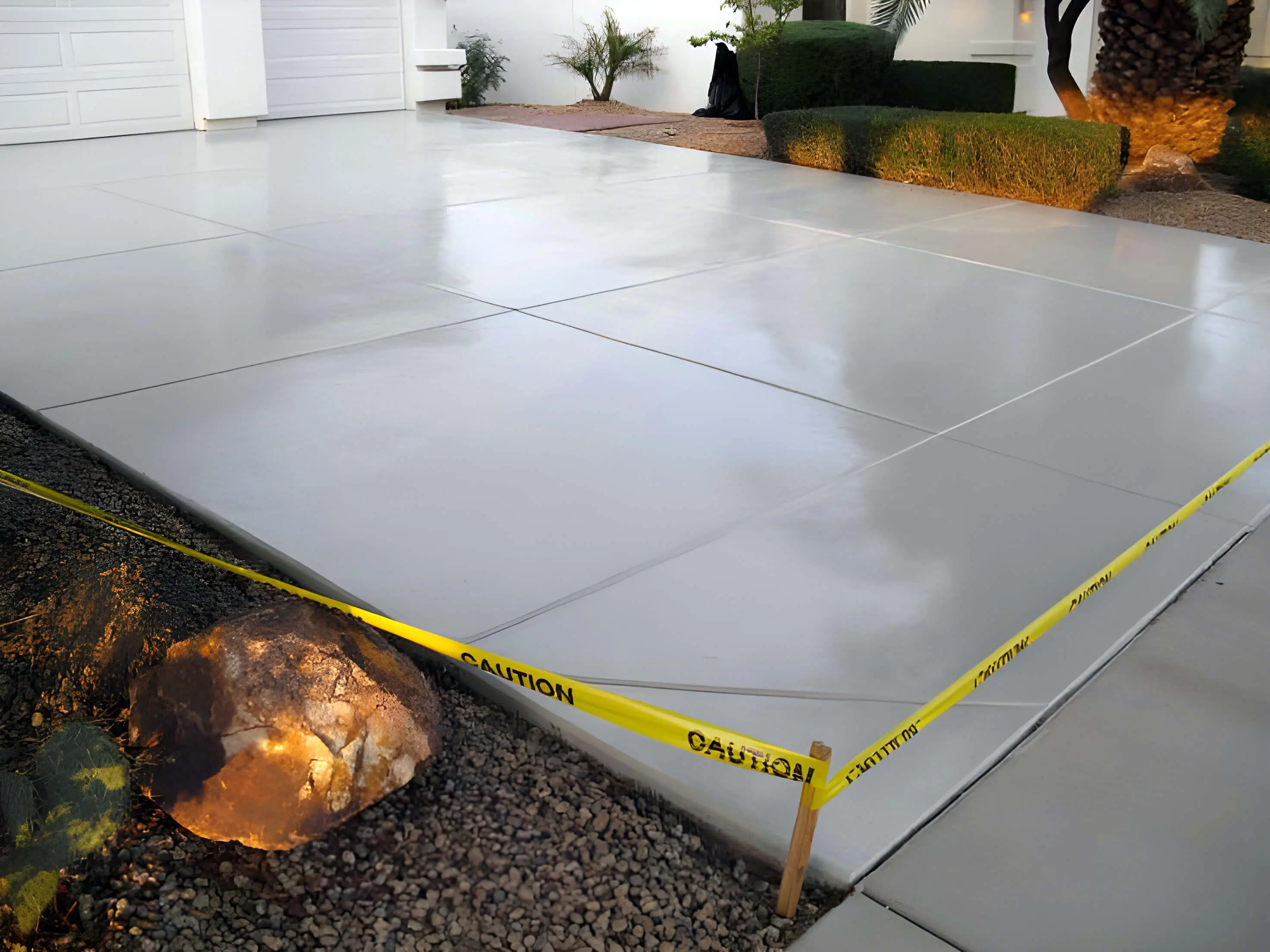Epoxy Your Concrete Driveway? Know Its Pros and Cons

There is no doubt that the driveway of your home is the first thing people notice when passing by or visiting.
Hence, it needs to be in top-notch condition, no matter the season. Aside from that, a driveway that’s easy to maintain becomes a plus point. And this is where epoxy resin coating plays a significant role.
Homeowners have a rising trend to apply epoxy coatings over their concrete driveways to protect them. And it’s not a surprise. Epoxy is incredibly durable and easy to maintain, so people trust it to keep their driveways as good as new.
This article aims to show you exactly why we think epoxy driveway coating is the best option available. So without further ado, let’s get going!
What’s An Epoxy?

In simple words, epoxy is an adhesive used for binding concrete. Polyamine hardener and epoxide resin are the two elements of an epoxy coating. Mixing these creates a chemical reaction that generates heat (exothermic reaction). The generated heat during the process binds the epoxy to the concrete surface.
P.S.- Don’t confuse an epoxy coating with epoxy paint, which is used to paint areas with high traffic and laboratories. While epoxy paints are usually more potent than regular paint, their durability is nowhere close to epoxy concrete coatings.
Epoxy concrete coatings generally have three layers, including colour, base or topcoat, and the combined thickness ranges from 1mm-5mm, while paints typically have one layer.
What Are The Benefits Of An Epoxy Coating?

1. It Works On Any Concrete Surface
We installed epoxy sealant in our driveways as we were concerned about staining them with oil and grease. However, you can use epoxy everywhere, on indoor concrete floors, driveways or other surfaces.
Combining some additives like plasticisers or reactive diluents with the epoxy coating is essential. Using proper additives helps it resist heat without getting discoloured. Plus, the additives keep it from getting slippery when wet. It’s a great option if you want easy-to-maintain and clean epoxy driveways.
2. It’s Super Strong
Warehouses, auto shops or other industrial facilities don’t install epoxy coatings because they look great. It can handle a lot of abuse, be it dropped tools, leaking fluids, or chemical spills.
After all, the manufacturers wouldn’t have offered a 15-year warranty or even lifetime guarantees if the epoxy coating wasn’t strong enough. The strong bond that the sealant forms with concrete only adds to its strength.
3. It Looks Great
There’s a saying that all strong things don’t look good, but this is not the case with epoxy coatings. You get countless design options, whether a clear coat or concrete grey. There are also colour options that look just like natural stone, speckled or pebbled finishes, solid colours and even abstract designs.
The coating is gleaming, making the driveway appear brighter, especially at night or in low-light conditions. Lastly, epoxy resists scratching and staining, so it can keep your concrete driveway as good as new for years to come.
4. It Has Low Maintenance Needs
Epoxy coating on a concrete driveway might give you the most easy-to-maintain flooring. It’s porous, so it doesn’t stain, even from antifreeze or oil leaking from a car. You won’t need any special detergent to wipe out these liquids- spray a mixture of mild detergent and water to get rid of them.
Spread the solution on the required areas with a hose, and use a dust mop or a broom to clean the stains.
Disadvantages Of Epoxy Coating On Concrete Driveways
An epoxy coating, like everything else, is also not perfect, and certain things can harm it.
For one, hot slag can be detrimental to a concrete floor. Secondly, moisture can damage the epoxy-coated concrete floor, especially if it oozes underneath the ground. Commonly termed moisture vapour, it delaminates the epoxy coating and separates it from concrete surfaces. However, cities with extremely high temperatures, like Perth and Darwin, are mainly free from underground moisture.
The epoxy coating can also be affected by leaks, drainage issues, or even a slab below grade, as moisture becomes more likely to get into the epoxy coating.
When the concrete surface becomes moist, white powders called efflorescence to begin to form, so it is crucial to keep an eye on them and clean them thoroughly as soon as they appear.
If these appear again, you must repeat the process until you have a moisture-free driveway.
Other Applications

Most homeowners install epoxy coatings on the floors inside their homes, replacing linoleum, tile or carpeting. We recommend using it on your garage floor, patio, and walkways.
Epoxy coating can be a great option if you’ve transformed your garage into a manufacturing hub, small office, guest room, man cave, workshop, or anything else.
Sealing Your Driveway With Epoxy
If you want to extend the life of your concrete driveway, sealing it with epoxy resin is an excellent option that will also add to the home’s beauty. And the best part is that you can apply it yourself.
However, here are a few things to remember if you’re taking the task upon yourself. One, make sure that it’s compatible with your driveway surface. Second, check the moisture level of the ground before applying a coat. And during its application, always be mindful of weather conditions. Ensure that it’s not raining within two days of application.
Nevertheless, if you don’t want to get your hands dirty, hire professionals to get the job done. These people have the requisite training, experience and equipment to complete the job quickly and correctly. If you live in the Sydney area, speak to the professional team at Top Coat Concrete. We can assist you with installing an epoxy coating on your driveway in no time!
On that note, we will see you later. Goodbye and take care!
Newsletter
Sign up to our flooring, epoxy and concrete blog newsletter and get all the latest news, tips and tricks from the industries best in Sydney.
Related Articles

Your DIY Guide to Resealing Concrete Driveway
Are you looking for a DIY guide to help you reseal your driveway? Know the proper way on how to reseal your concrete driveway in this article.

What Is The Best Concrete Sealer For Your Driveway
Looking to pave your driveway with a suitable concrete sealer? Check out this brief guide to know which sealer is the best for you!

Understanding The Pros And Cons Of Epoxy Floors
Planning to install an epoxy floor in your house or commercial space? Before you start, here’s everything you need to know about the pros and cons of having an epoxy floor.